Four Lives: Stephen Port neighbour reveals ‘dread’ when he realised serial killer’s horrific crimes
and live on Freeview channel 276
The neighbour of Grindr serial killer Stephen Port - who is portrayed in the new BBC drama Four Lives - has told how he was “duped” by the murderer, who he described as “quirky” and “softly-spoken”.
Advertisement
Hide AdAdvertisement
Hide AdFlawed police investigations into his crimes, including failing to link the victims’ deaths, were depicted in BBC drama Four Lives, which aired after inquests concluded in December 2021.
Now Ryan Edwards, 43, played by History Boys actor Samuel Barnett in the hit BBC show, who lived across from Port’s Barking home for three years, has told of his relationship with the “strange” serial killer.
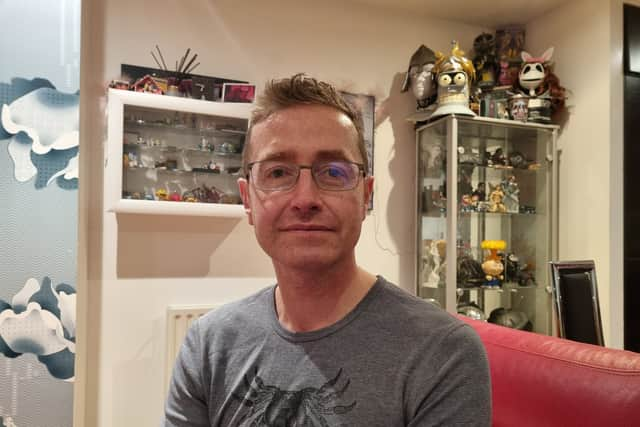

Moving to Barking in 2005, after studying at the University of East London, Ryan who grew up in Canvey Island, Essex, was keen to meet other young, gay men in his neighbourhood.
Advertisement
Hide AdAdvertisement
Hide Ad“I could see Stephen’s flat from my old apartment,” he said.
“I had to walk past to go to town, so one day I introduced myself and there began a neighbourly relationship.
“If I’d been in a metropolitan area, with gay friends and neighbours in abundance, being harsh, perhaps I might not have invested as much into Stephen’s friendship.
“But he was my age, lived nearby and was gay, so we became friends.”
Advertisement
Hide AdAdvertisement
Hide AdFound guilty of the four murders in 2016, Port, 46, is set to die behind bars for the killings.
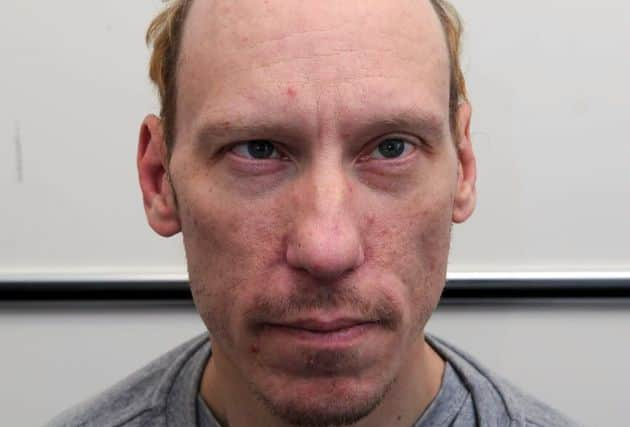

But digital consultant Ryan says he never witnessed any violence from his neighbour, who he viewed as “damaged”, with a childlike interest in toy trucks and cars.
He said: “He was very softly spoken. I never saw any anger or any violence from him.
Advertisement
Hide AdAdvertisement
Hide Ad“I regarded him as the Big Friendly Giant - strange and quirky but completely non-threatening.
“Perhaps I was duped much as everyone else was, looking back. He presented the way he wanted people to perceive him.”
The inquests, held at Barking Town Hall, yards from where the bodies were found, heard Ryan told a BBC documentary, that ex-boyfriends of Port’s complained of his violence, including pushing one man into a TV.
However, Ryan told LondonWorld that Port “would always have a completely contradictory story”.
Advertisement
Hide AdAdvertisement
Hide AdIn 2008, Ryan moved to another flat elsewhere in Barking, but remained friendly with Port.
“If I had still been there at the time there is a possibility I would have seen Anthony slumped up against the wall,” he said.
But it wasn’t until late 2013 that he began to suspect Port may have had a drug problem, due to his continual sniffing, which he ascribed to allergies.
“His involvement with drugs was linked to his deteriorating behaviour,” Ryan said.
Advertisement
Hide AdAdvertisement
Hide Ad“He would fall in and out of love and meet partners very frequently.”
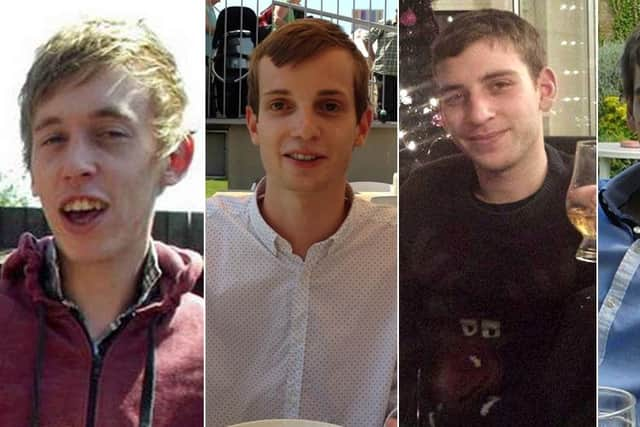

Visiting Port’s flat to meet one of his partners in early 2014, the inquest heard Ryan had told the documentary makers he was shocked at the sight of “dozens of bags of powder” and “vials of clear liquid” in his home, “far beyond personal use.”
He told LondonWorld: “Stephen didn’t look like his normal self… his partner seemed under the influence.”
It was at that stage, with concern mounting, that Ryan began to distance himself from Port.
Advertisement
Hide AdAdvertisement
Hide AdMeeting Gabriel Kovari, Port’s then-lodger and his second victim, also worried Ryan, who offered to host the young man while he found another place to live.
“That’s when Gabriel whispered to me, ‘Stephen isn’t the man you think he is,’” Ryan said.
“It was worrying to hear about someone you think you know.”
Following Gabriel’s death, Port told Ryan via text that he had fallen ill and returned to Slovakia, where he had since died.
The explanation baffled Ryan, but he did not become aware until after the fourth murder that Gabriel’s body had been discovered close to Port’s flat.
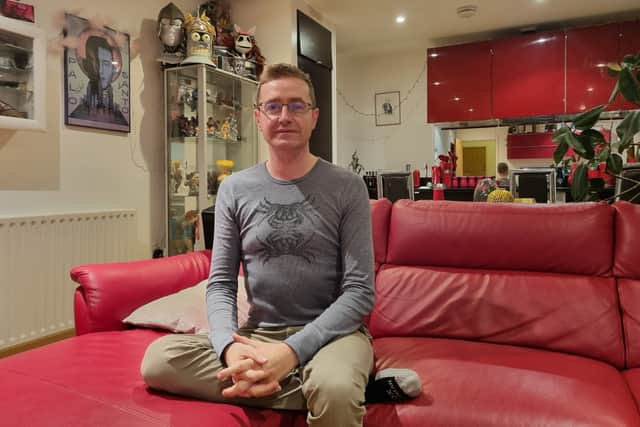

Advertisement
Hide AdAdvertisement
Hide AdA meeting with Port’s mother also prompted concern for Ryan.
“I met her once and it was an unusual conversation when Stephen left us alone,” he said.
“I asked her what he was like growing up, as he was very monosyllabic and I couldn’t understand how he was attracting so many men.
“She said he was a bubbly, outgoing, fun lad, very chatty, and social. Then he got into his teenage years and then she just trailed off. She stopped talking and changed the subject.”
Advertisement
Hide AdAdvertisement
Hide AdA strong age preference was also a notable aspect of Port’s dating life.
Ryan said: “I had a boyfriend once who was 29 and I remember Stephen screwing his face up in disgust and saying ‘far too old’.
“He said he would never dream of dating someone over the age of 23. He would have been in his late 30s by that point. It was a very arbitrary and very young cut off point.”
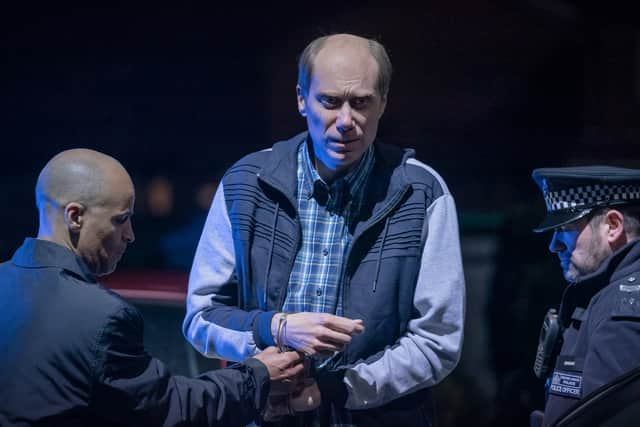

Finally, after the deaths of both Daniel Whitworth and Jack Taylor, police arrested Port and charged him with the four murders.
Advertisement
Hide AdAdvertisement
Hide AdCops initially insisted the first three deaths were unsuspicious, and did not look into evidence including CCTV footage, a faked suicide note and Port’s laptop, until after the fourth murder.
Ryan recalls reading a news story about his neighbour’s arrest, and feeling a “cold dread”.
He said “My neighbour sent me a link to the BBC article that Stephen had been arrested.
“It was about quarter to nine in the morning, and I immediately sat bolt upright in bed.
Advertisement
Hide AdAdvertisement
Hide Ad“It was like a cold dread. It did feel horrific obviously, but it did feel like something clicking into place.”
However when Ryan tried to give his information to the police in Barking he was “hit with a wall of indifference”.
“And it was also an immediate realisation that ‘my god he’s guilty and I’ve got to get this evidence to the police’,” Ryan explained.
“And then hit with a wall of indifference.”
Ryan, who still lives in Barking, feels there has been no tangible improvement in the police’s relationship with the LGBT+ community.
Advertisement
Hide AdAdvertisement
Hide AdIn a statement after the inquests concluded, Met Police assistant commissioner Helen Ball called the findings “devastating” and said: “We’re deeply sorry that there were failings in the police response to the murders. I give my own and the Met’s heartfelt apologies.
"We’ve been working to rebuild trust in the Met for some time now and we completely accept that people’s trust in us has been damaged.
“What has happened in connection with the deaths of these four young men is part of that damage and we know it has a particular impact on communities local to Barking and LGBT+ communities across London.
“It’s very important now that we show that we are trustworthy, that we care, that we have changed and that we are learning so that we can work with every person and every community to help protect them.
Advertisement
Hide AdAdvertisement
Hide Ad“The whole of the Met, and I know I speak for the whole of the Met, is committed to improving our investigations, our relationships and the trust that people have in us.
“We believe we have been doing just that and it will remain the focus of our leadership in keeping people safe.”
A Met Police spokesperson said: “After hearing seven weeks of detailed evidence, an inquest jury determined that Anthony Walgate, Gabriel Kovari, Daniel Whitworth and Jack Taylor were unlawfully killed.
“They also found that the deaths of three of those young men – Gabriel, Daniel and Jack – could probably have been prevented had the initial police responses and investigations been better.
Advertisement
Hide AdAdvertisement
Hide Ad“It is a devastating finding. Our thoughts are with everybody who loved these young men. We are so sorry for their loss.
“We are deeply sorry there were failings in the police response to the murders and give our heartfelt apologies. All those who loved Anthony, Gabriel, Daniel and Jack expected a professional and thorough police investigation into their deaths and it is a great sadness to everybody at the Met that this didn’t happen.
“It is absolutely not right that friends and families had to produce their own information about the deaths. While we work closely with families and need their help and support this should not have happened and again, for that, we are sorry. We would have expected the officers to have listened to all concerns and investigated them properly.
“The jury couldn’t consider prejudice on a point of law, but we recognise the concerns amongst LGBT+ communities and we don’t dismiss those feelings.
Advertisement
Hide AdAdvertisement
Hide Ad“In an organisation of over 44,000 people, there will be a small number with attitudes and beliefs that are not welcome in the Met; we will challenge, educate and discipline as appropriate. We’re working hard to develop our network of LGBT+ police advisers to support communities – we know there is more to do.”
Four Lives aired on BBC One in January 2022 and can be viewed on BBC iPlayer.
If you’re interested in finding out more about the Stephen Port case, Ryan is holding a free screening of the BBC drama Four Lives, followed by a Q&A, on January 14 at Zodiac Bar in Euston. For full details click here.
